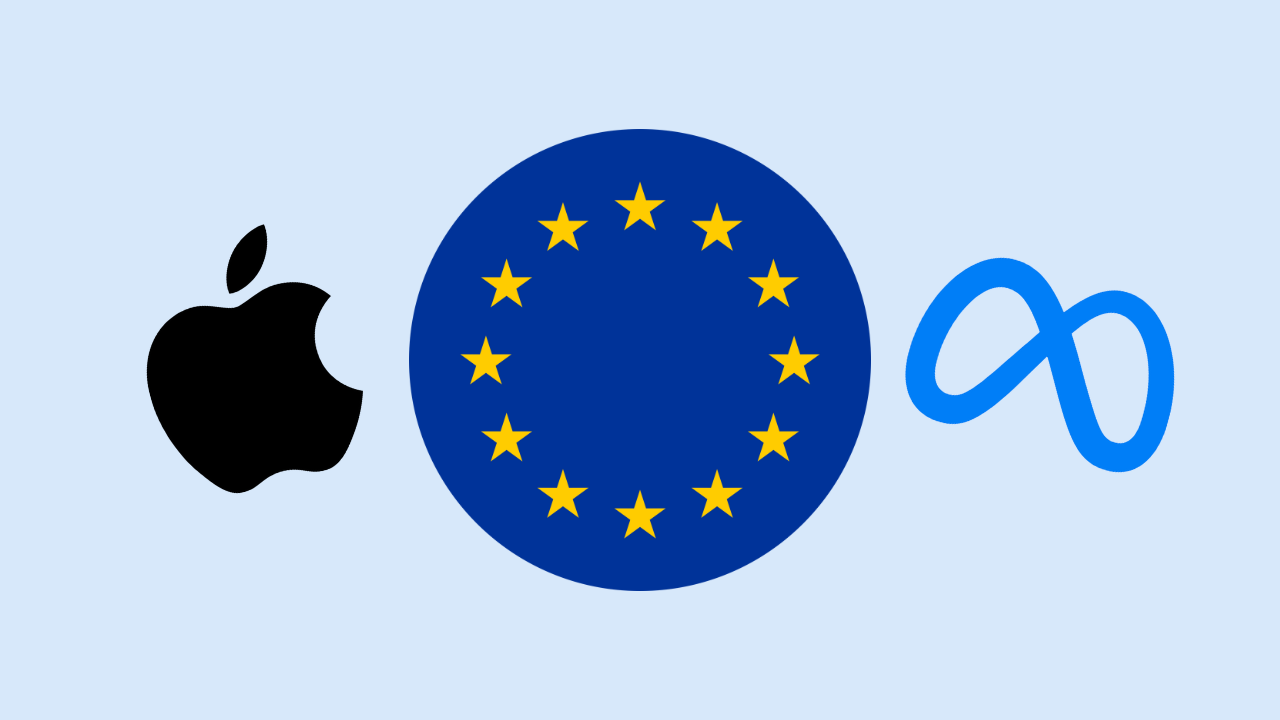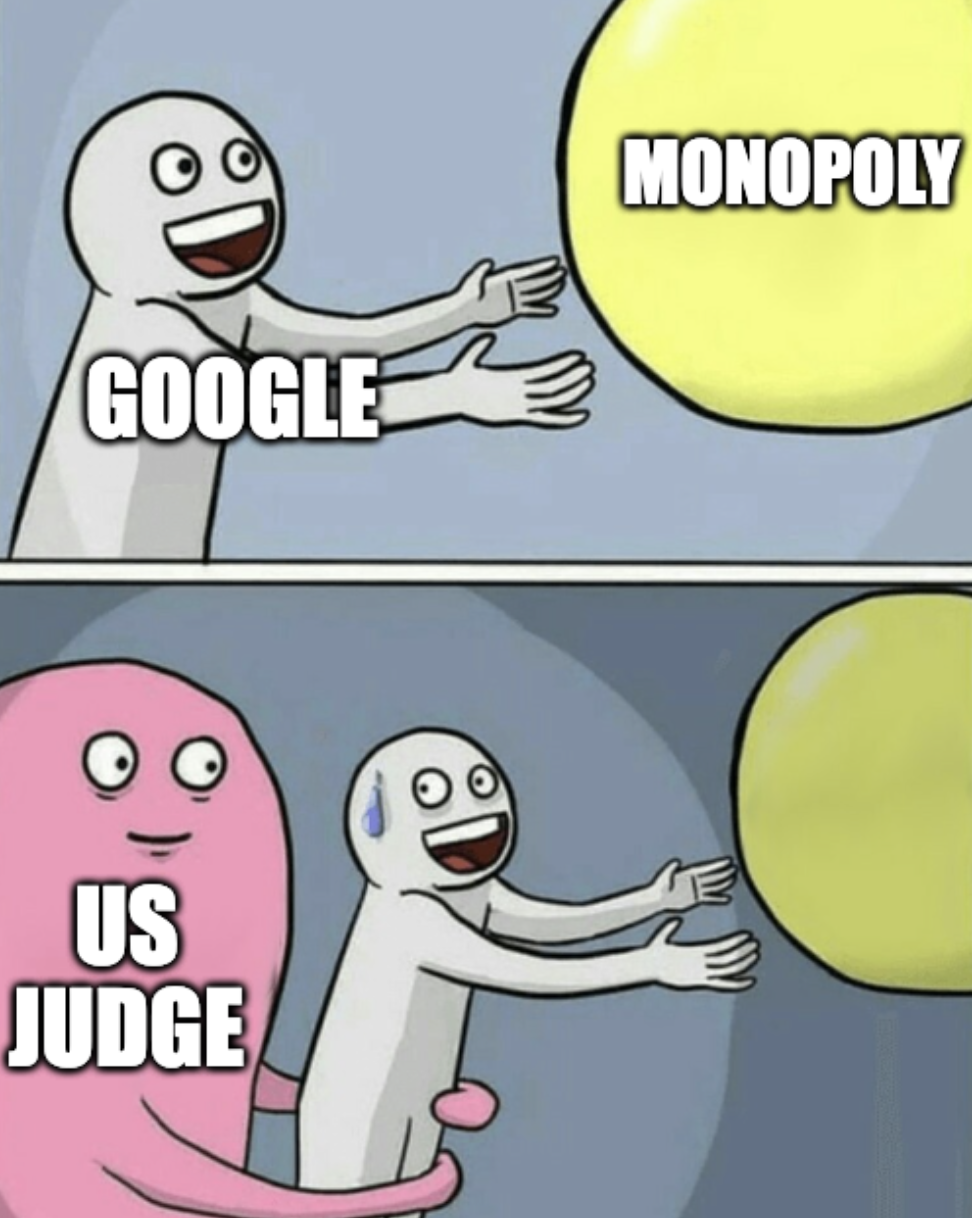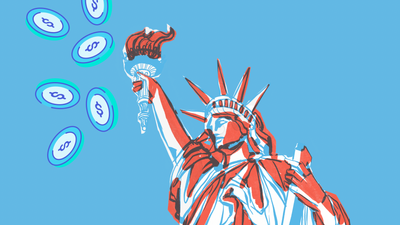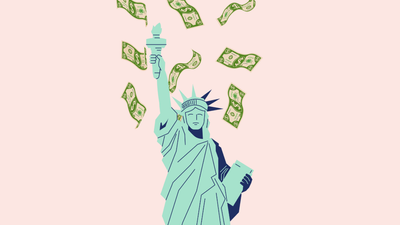Fines and Elections

Hi ZipLawyer! Here's all the news you need to know from last week plus what to look out for this week.
EU fines Big Tech
If you met a particularly excited competition lawyer this week, it's probably because the the EU handed down hefty fines to Apple (€500m) and Meta (€200m) under its new Digital Markets Act (DMA), which aims to curb anti-competitive behaviour by tech giants.
- What are the fines for? Apple’s penalty was for limiting how app developers communicate pricing information with customers, while Meta was punished for forcing users to either share personal data for ads or pay subscription fees. Both companies slammed the fines as unfair.
- Why should you care? These are the first major penalties under the DMA, signalling that Europe’s regulators mean business when it comes to reining in Big Tech’s power.

Market Rollercoaster
Stock markets had a shaky week as Trump ramped up pressure on the Federal Reserve, criticising its chair, Jerome Powell, for not cutting interest rates faster. Rumours even spread that Trump was exploring ways to sack Powell. This spooked investors, sending markets down and the dollar to a three-year low. Gold, a classic safe haven, shot to record levels.
Trump later calmed markets, saying he wouldn’t fire Powell and hinted at softening trade tensions with China by potentially reducing steep tariffs. Meanwhile, the US slapped massive tariffs on solar panels from several Asian countries, reflecting Trump’s aggressive trade stance.

Google’s Monopoly
In a landmark ruling, a US federal judge found Google illegally monopolised parts of the digital advertising market, controlling the tools publishers use to sell ads and the exchange where ads are auctioned. This antitrust defeat could force Google to divest parts of its ad business. The case is part of a broader crackdown on Big Tech, following a similar ruling against Google’s search dominance last year. Remedies, like selling Chrome or limiting deals with Apple, are now on the table as regulators target tech giants’ grip on digital markets.

Tariffs hit Temu, Shein
Prices on Temu and Shein are already climbing as the US prepares to close the de minimis exemption, which let shoppers avoid tariffs on imports under $800. From 2 May, this Trump-ordered crackdown—linked to tackling China’s role in the opioid crisis—will disrupt these retailers' ultra-low pricing. Experts argue the move won’t curb fentanyl but will squeeze low-income consumers. Both platforms, reliant on China-sourced goods, are bracing for margin hits and price hikes, with shoppers lamenting the end of bargain-hunting bliss.
Like our roundup? Join ZipLaw+ to get one like this every day of the week!
Ozempic Copycats
Novo Nordisk has scored a major legal victory in Texas, blocking compounding pharmacies from making cheaper versions of its blockbuster weight loss drugs Ozempic and Wegovy. A US judge denied the pharmacies' request to keep producing copycats while their lawsuit continues.
- Tell me more. These smaller pharmacies, which customise drugs for individual patients, had been allowed to make these versions during a supply shortage. But now that the US Food and Drug Administration says supply has stabilised, the legal loophole is closed. Novo isn't the only big pharma flexing its legal muscles—Eli Lilly has also filed suits against telehealth companies selling similar knock-offs.
M&S Cyber-Attack
You can thank a cyber attack if, like me, you found yourself awkwardly fumbling for cash because you couldn’t pay for the new M&S pistachio bar with contactless this week.
- What happened? M&S halted all online orders after a cyber-attack disrupted its website and apps. While stores remain open and contactless payments are back, online checkouts stay paused as cybersecurity experts investigate. No customer data has been compromised, but shoppers are warned to watch for scams. Shares dropped 2.3%, highlighting the retail sector’s rising exposure to cyber threats.
- For Law Firms: The M&S cyber-attack highlights rising demand for cybersecurity and data protection lawyers, especially in retail. As attacks escalate, businesses need advice on regulatory compliance, incident response, and customer notification obligations under laws like the UK GDPR. Lawyers can also assist with third-party liability issues, as companies seek to hold suppliers accountable for security gaps.
Worth Knowing

✝️ Pope Francis' Funeral: Pope Francis was honoured at St Peter’s Square with 200,000 mourners and global leaders, including Trump, Zelenskyy, and Starmer. His coffin toured Rome before burial at Santa Maria Maggiore—the first pope in a century interred outside the Vatican.
✂️ Cut the Forecast: The IMF cut global growth forecasts to 2.8% from 3.3%, blaming trade tensions and policy uncertainty. The US expects 1.8% growth, eurozone just 0.8%, with Germany flatlining. Forecasts could shift again amid unpredictable global policies.
🤖 UAE Taps AI for Laws: The UAE plans to use AI to draft laws, sparking controversy. Despite heavy investment in AI, concerns swirl over its accuracy—AI can “hallucinate” false info. While positioning as a tech pioneer, the UAE risks undermining legal accountability.
👀 Keep an eye on
Australia, Singapore Elections

Canada isn’t the only one heading to the polls—Australia and Singapore both vote this Saturday 3 May with cost-of-living pressures front and centre.
In Australia, rising rents, high interest rates, and stubborn inflation dominate the race as Prime Minister Anthony Albanese’s centre-left Labor government fights for a second term. Both Labor and the opposition Liberal-National coalition, led by Peter Dutton, are promising help for first-time homebuyers amid a national housing crunch. Polls suggest Labor stays in power, though perhaps needing support from independents or smaller parties.
Over in Singapore, high living costs remain a key issue too. Prime Minister Lawrence Wong has leaned on cash handouts and social welfare to ease post-pandemic economic strain. Wong’s People’s Action Party (PAP), ruling since 1965, has never lost an election, but opposition voices are growing louder. The Workers’ Party won a record 10 seats in 2020, and this year Wong fields 32 new candidates, marking a generational shift within the PAP.
Unlock 400+ cases, deals, news about your favourite law firms to impress in applications and ACs!
➡️ Week Ahead

Monday: Canada holds a national election - Mark Carney (Liberal) vs. Pierre Poilievre (Conservative)
- Why it matters: Canada’s leadership affects trade, energy markets, and its relationship with the US, which impacts businesses across North America.
Tuesday: US job openings for March; earnings from HSBC, Deutsche Bank, GM, Spotify, and Coca-Cola; Chile’s central bank rate decision; Bloomberg’s BNEF summit in New York.
- Why it matters: Job data shows the health of the US economy; earnings reveal how big companies are coping with inflation and interest rates; central bank decisions shape emerging market stability.
Wednesday: Trump marks 100 days in office; US Q1 GDP and PCE inflation data; Mexico and eurozone GDP; earnings from Meta, Microsoft, Robinhood; China’s manufacturing PMI; Australia CPI; rate decisions in Thailand and Colombia.
- Why it matters: GDP and inflation shape interest rates and market sentiment; tech earnings reveal trends in advertising, AI, and consumer spending; China's manufacturing data reflects global demand.
Thursday: Bank of Japan rate decision; earnings from Amazon, Apple, Samsung.
- Why it matters: Japan’s rates influence Asian markets; Big Tech earnings shape the global economy, revealing shifts in consumer habits and tech innovation.
Friday: US April payrolls report; eurozone and South Korea inflation; earnings from Exxon, Chevron, Shell.
- Why it matters: US jobs data drives Federal Reserve policy; inflation affects consumer prices; oil giant earnings give insight into energy markets and geopolitical tensions.
Term of the Week
A Share Purchase Offer is like an open invitation to buy a slice of a company. It happens when a company (or an investor) offers to purchase shares from existing shareholders—either to gain control of the company or to invest in it. Think of it like offering to buy your friend’s football game tickets at a set price—it’s up to them whether they want to sell or hold on.
- 👀 See it in practice: Deliveroo is in talks to be acquired by US rival DoorDash for £2.7bn. This would mark yet another UK-listed company snapped up by an overseas buyer. Deliveroo, once valued at £7.6bn at its 2021 IPO, is now trading over 60% below its listing price. Competition from Uber Eats and Amazon's grocery play hasn’t helped. Deliveroo’s board is leaning toward recommending DoorDash’s £1.80-a-share offer.
🙋 Did you find this helpful? If so, please let us know by voting below!






